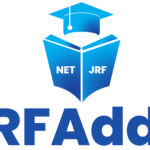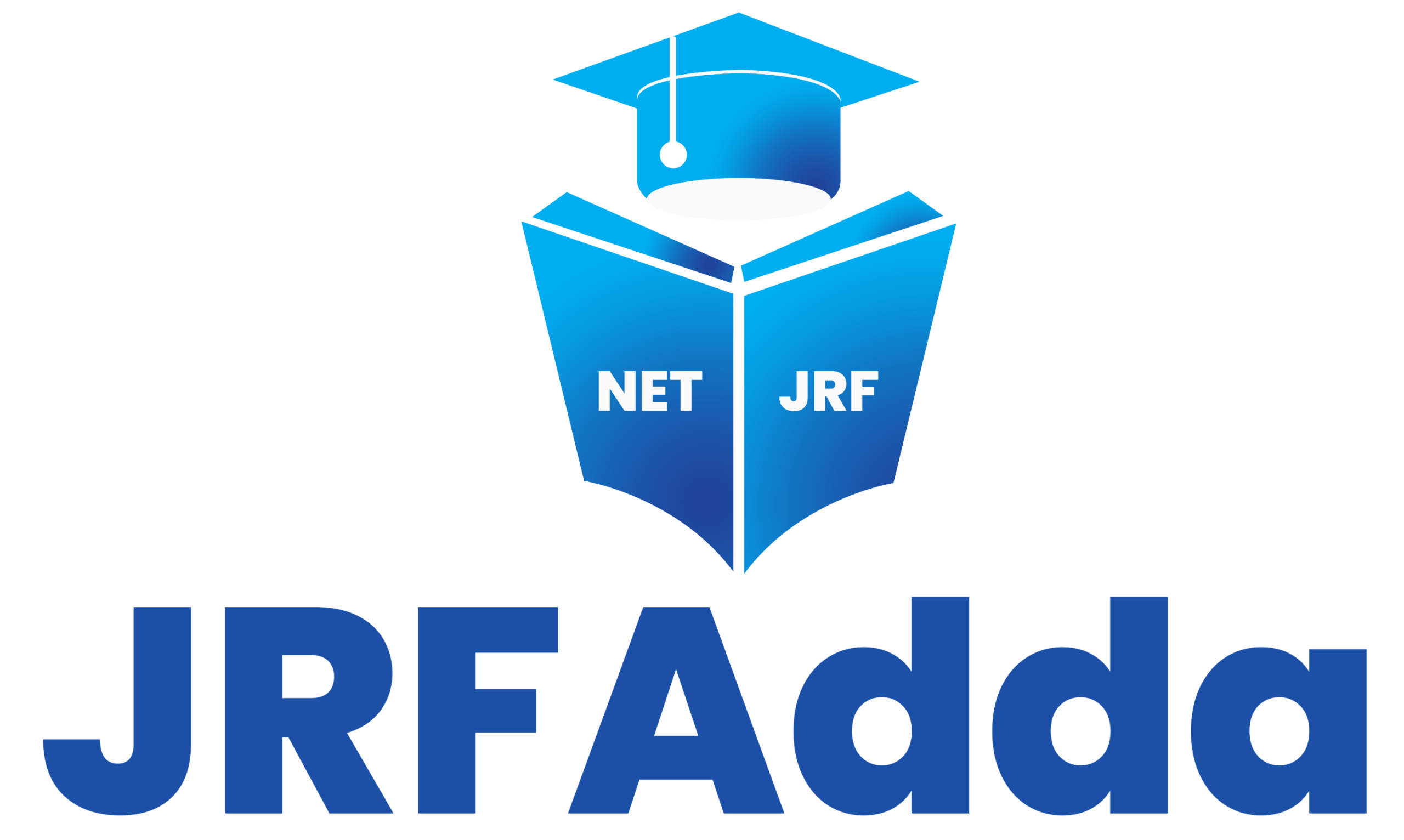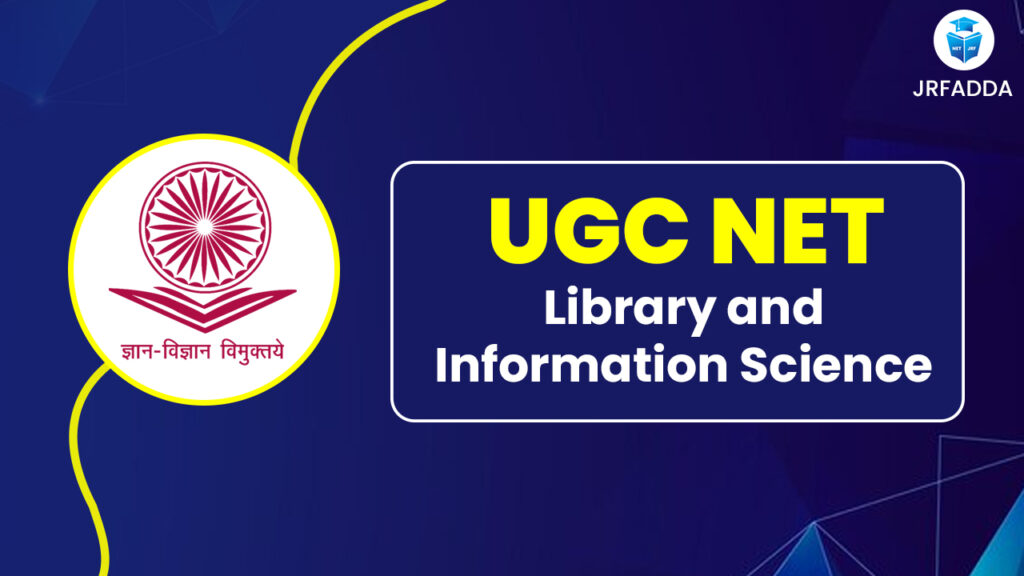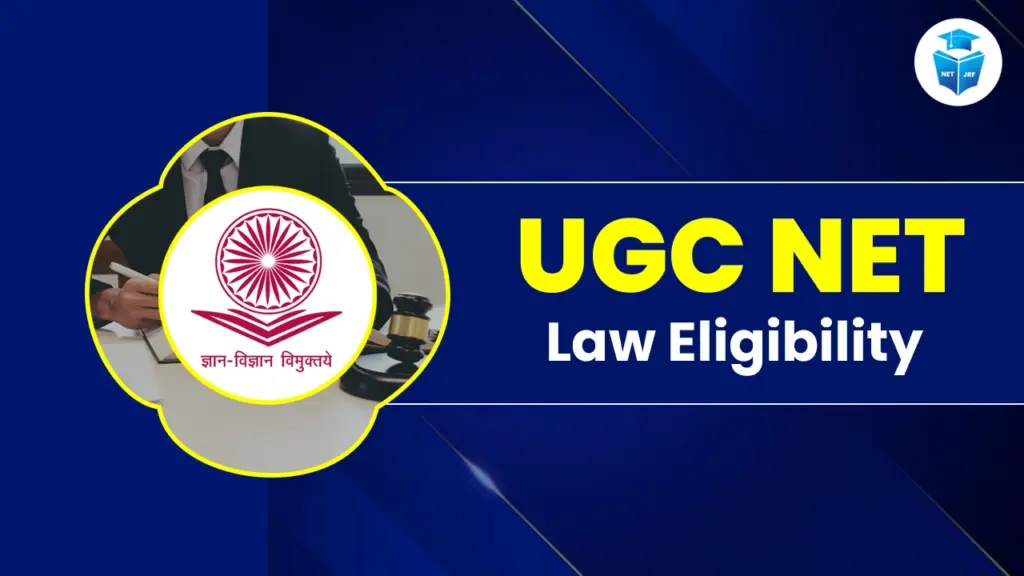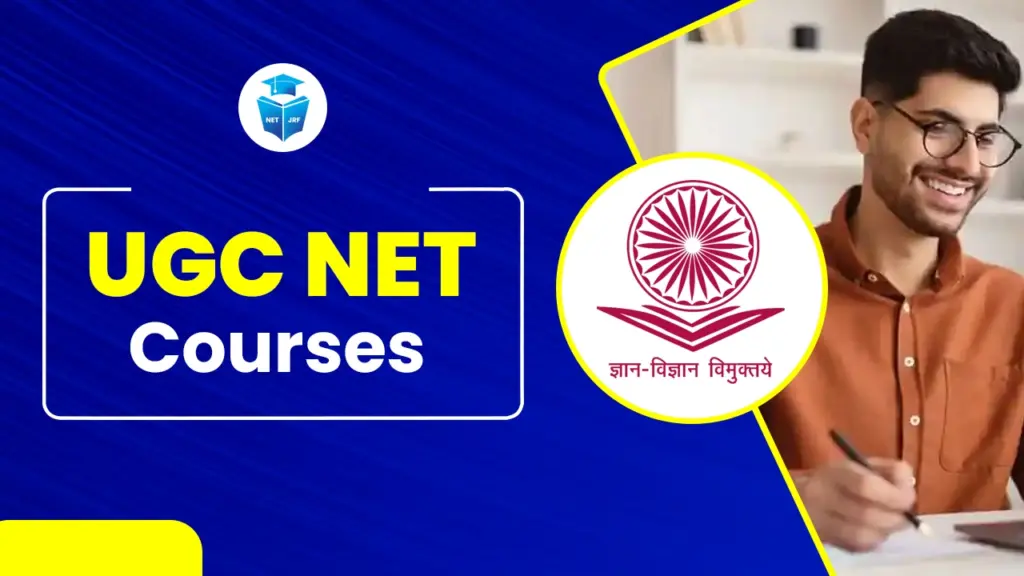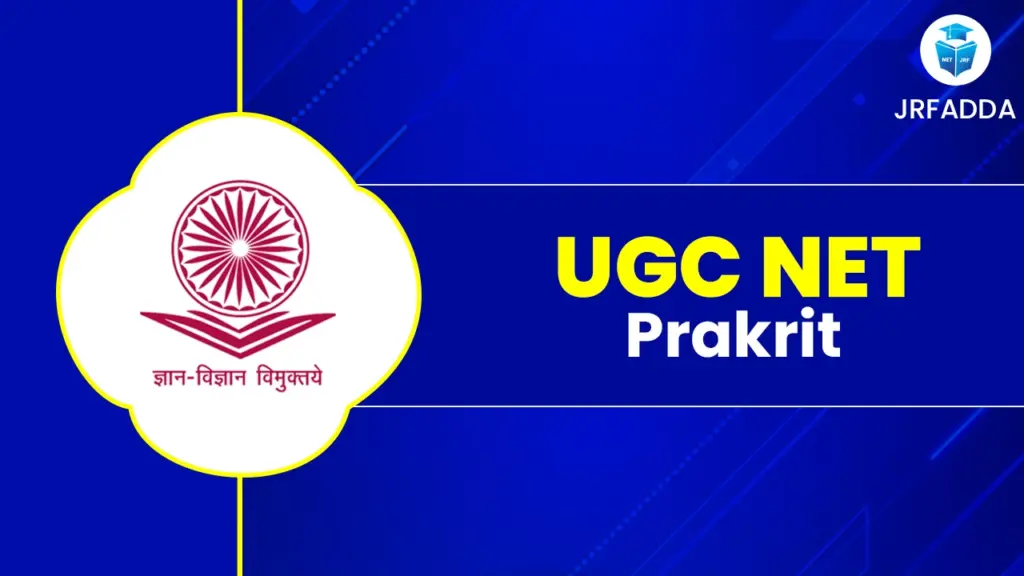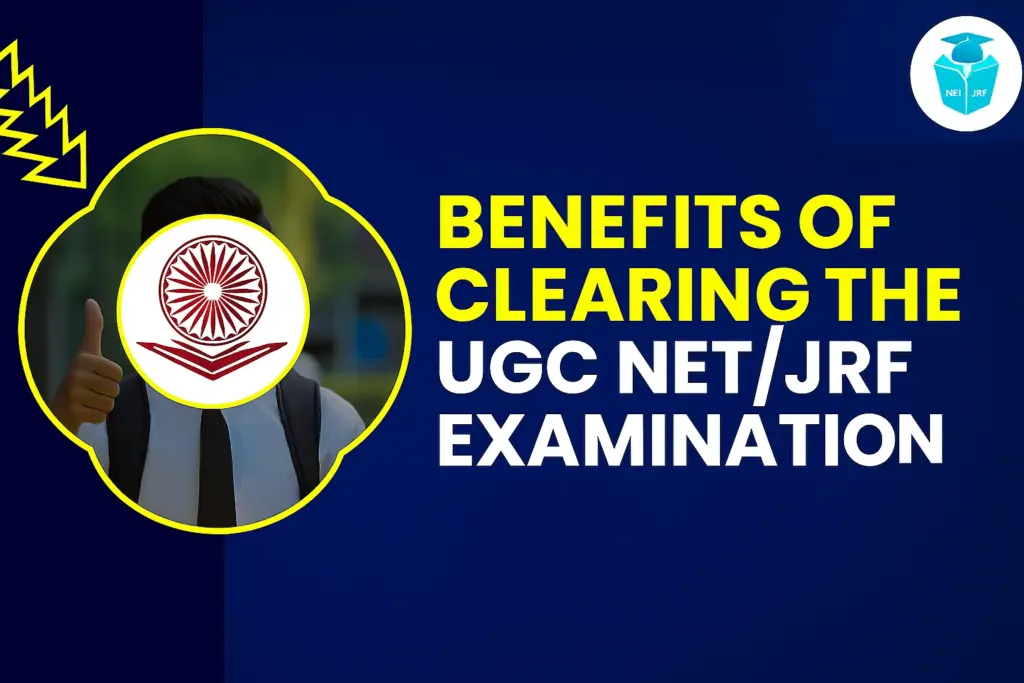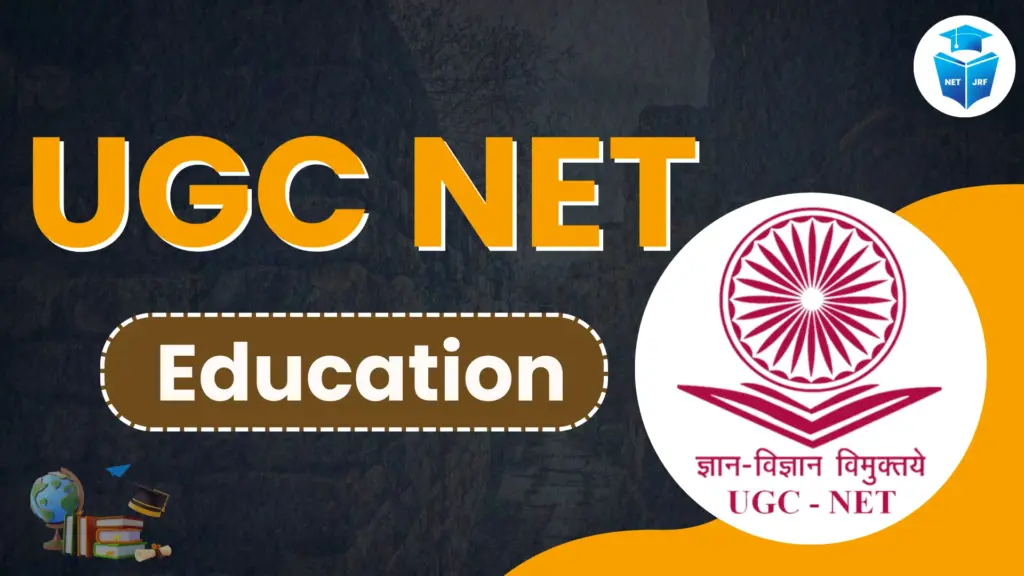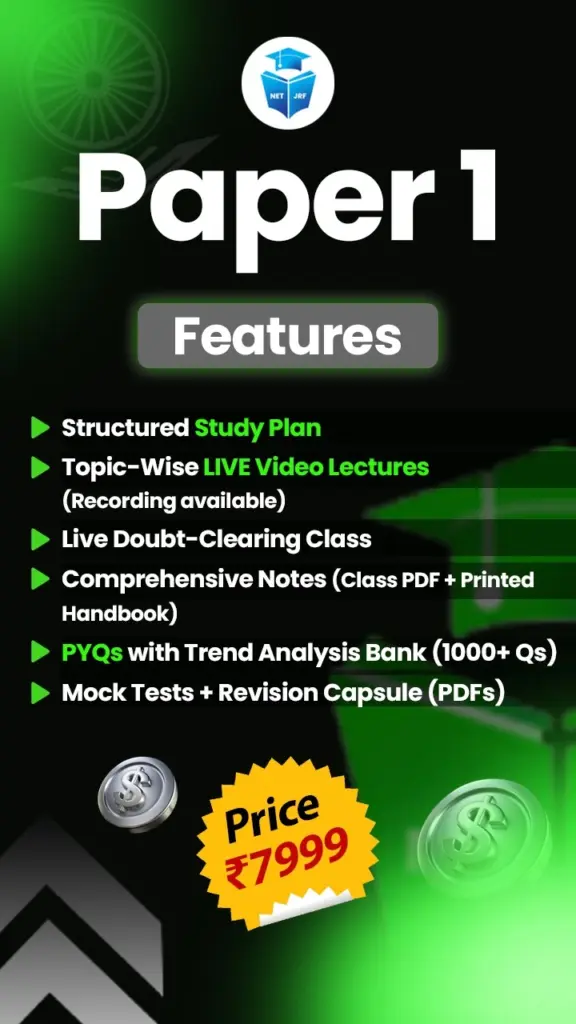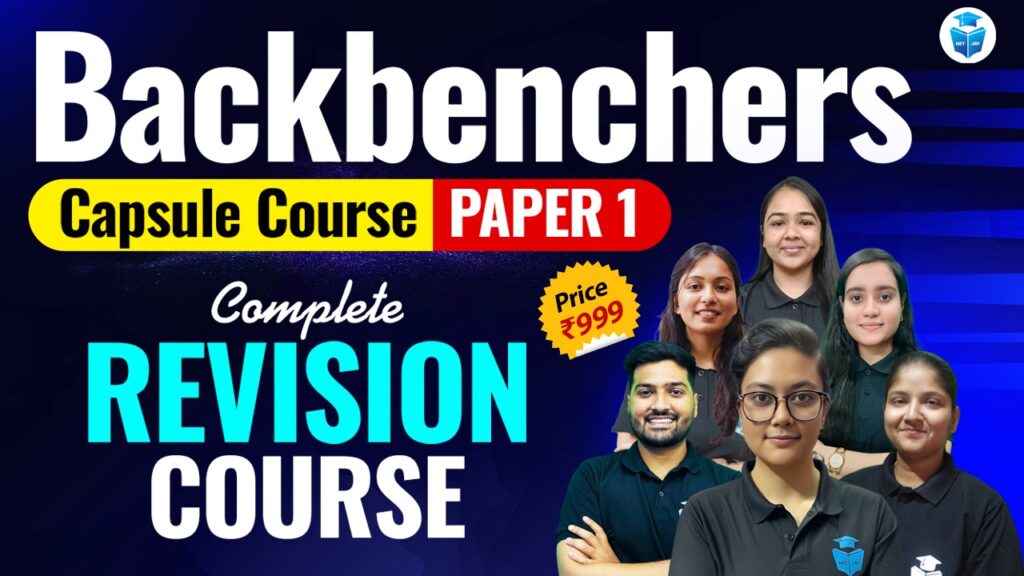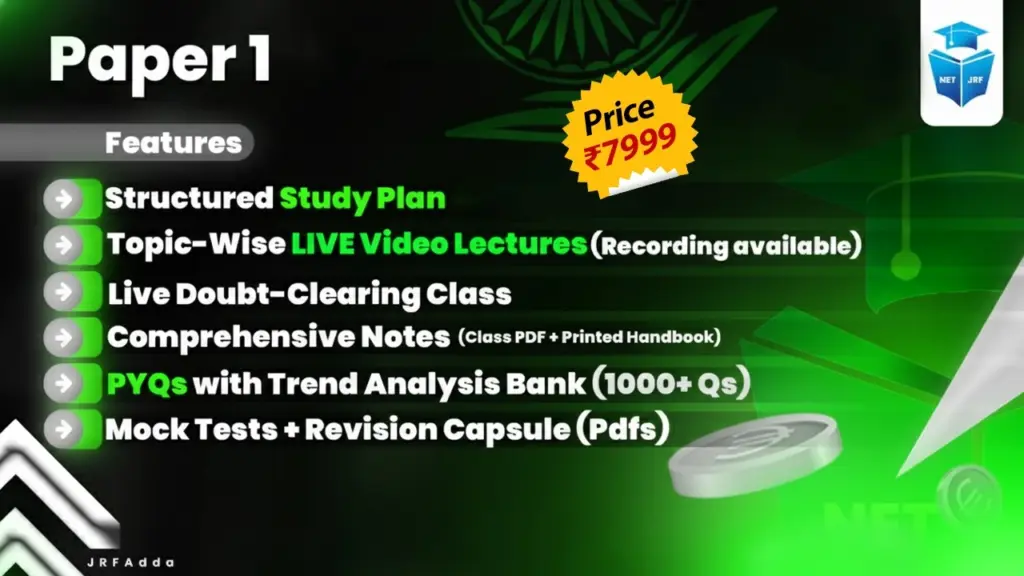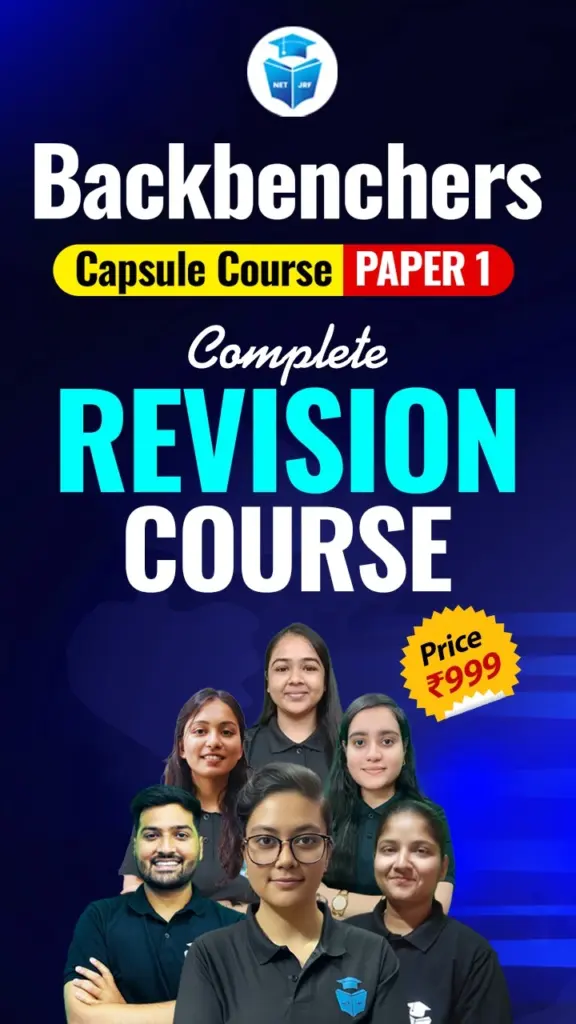UGC NET Library and Information Science 2025 exam, conducted by the National Testing Agency (NTA) on behalf of the University Grants Commission (UGC), is a prestigious national-level eligibility test. The UGC NET December 2025 cycle has now concluded on 2nd January 2026 in the shift 1st.
The UGC NET 2025 exam evaluates candidates aspiring to qualify for Junior Research Fellowship (JRF) or Assistant Professorship in the field of Library and Information Science.
In this article, you’ll find details on the UGC NET Library and Information Science 2025 eligibility criteria, syllabus PDF, exam pattern, previous year papers, preparation strategies, and FAQs to guide you toward success.
Also Read: UGC NET Exam Date 2025
UGC NET Library and Information Science 2025 Overview
The UGC NET Library and Information Science 2025 exam is a prestigious national-level test conducted by the National Testing Agency (NTA) to recruit eligible candidates for the positions of Assistant Professor and Junior Research Fellowship (JRF) in the field of Library and Information Science. This exam is designed to assess candidates’ knowledge and aptitude in both general teaching/research abilities and specialized subject expertise.
The exam consists of two papers: Paper I, which covers general topics such as teaching and research aptitude, reasoning, and comprehension, and Paper II, which is focused specifically on Library and Information Science (Subject Code 58). The examination is conducted online through a computer-based test (CBT) format, ensuring accessibility and convenience for candidates across India.
| Feature | Details |
| Exam Name | UGC NET Library and Information Science 2025 |
| Conducting Authority | National Testing Agency (NTA) |
| Posts | Assistant Professor & JRF |
| Exam Level | National level |
| Papers | Paper I (General), Paper II ( Library and Information Science– Subject Code 58) |
| Exam Date | 2 January 2026 in shift 1 (9:00 AM – 12:00 PM) |
| Exam Mode | Online (Computer-Based Test) |
| Exam Duration | 3 Hours (180 Minutes) |
| Official Website | ugcnet.nta.nic.in |
Also Read: UGC NET Exam 2026
What is UGC NET Library and Information Science 2025?
UGC NET Library and Information Science 2025 is an examination specifically designed to evaluate the knowledge and skills of candidates in the field of Library and Information Science. Clearing this exam qualifies candidates for Assistant Professor roles or Junior Research Fellowship positions in Indian universities and colleges. This qualification is highly valued and often mandatory for academic appointments, especially in government and central universities.
Also Read: UGC NET Previous Question Papers PDF
UGC NET Library and Information Science 2026 Eligibility Criteria
To be eligible for the UGC NET exam in Library and Information Science in 2026, candidates must meet the following criteria:
- Educational Qualification: Candidates should have a Master’s degree or its equivalent from a recognized university in Library and Information Science or a closely related discipline.
- Minimum Marks:
- General category candidates must secure at least 55% aggregate marks in their Master’s degree.
- Candidates belonging to reserved categories such as SC, ST, OBC, and PwD must have a minimum of 50% aggregate marks.
- Final Year Students: Candidates who are in the final year of their Master’s degree and are awaiting their results are also eligible to apply for the exam.
- Age Limit:
- There is no upper age limit for candidates applying for eligibility as an Assistant Professor.
- For Junior Research Fellowship (JRF), the upper age limit is generally 30 years, with age relaxations applicable to candidates from reserved categories as per government norms.
Also Read: UGC NET Eligibility Criteria
UGC NET Library and Information Science 2025 Exam Pattern
The UGC NET exam for Library and Information Science in 2025 is conducted in two papers, both of which are mandatory and held together in a single session lasting three hours.
| Paper | Subject | Number of Questions | Marks | Duration |
| Paper I | General Aptitude (Teaching & Research Aptitude) | 50 | 100 | |
| Paper II | Subject-Specific: Library and Information Science | 100 | 200 | 3 Hours (Combined) |
Also Read: UGC NET Exam Pattern Paper 1 & 2
UGC NET Library and Information Science 2026 Syllabus PDF
The UGC NET Library and Information Science 2026 syllabus PDF provides a comprehensive overview of the exam topics, divided into five major units that cover fundamental concepts, library management, information technology applications, research methodology, and recent trends in the field. This syllabus serves as an essential guide for candidates preparing for the UGC NET Library and Information Science.
| UGC NET Library and Information Science 2026 Syllabus PDF Link | ||
|---|---|---|
| UGC NET Library and Information Science 2026 Syllabus PDF | English | Click here |
| UGC NET Library and Information Science 2026 Syllabus PDF | Hindi | Click here |
Also Read: UGC NET Syllabus 2026 PDF Download – Paper 1 and Paper 1
UGC NET Library and Information Science 2026 Syllabus
The UGC NET Library and Information Science 2025 Syllabus is designed to test the comprehensive knowledge of candidates aspiring to become Assistant Professors or Junior Research Fellows. The syllabus is divided into two papers.
Unit I: Fundamentals of Information and Communication
- Data, Information, Knowledge, and Wisdom
- Information Life Cycle: Generation, Collection, Storage, Dissemination
- Role of Information in Planning, Management, Socio-economic, Cultural, Educational, and Technological Development
- Information Science: Relationship with Other Subjects, Information Society, Knowledge Society
- Communication: Concepts, Types, Theories, Models, Channels, Barriers, Trends in Scholarly Communication
- Information Industry: Generators, Providers, Intermediaries
- Intellectual Property Rights (IPR) and Legal Issues: Categories, Conventions, Treaties, Laws
- Plagiarism: Concepts and Types
- Right to Information Act (RTI), Information Technology Act
- National Knowledge Commission, National Mission on Libraries
Unit II: Libraries in India and Professional Ethics
- Historical Development of Libraries in India; Key Committees and Commissions
- Types of Libraries: Academic, Public, Special, National
- Library Legislation and Library Acts in Indian States; Press and Registration of Books Act; Delivery of Books and Newspapers Act
- Laws of Library Science
- Librarianship as a Profession: Skills, Competencies, Ethics
- Professional Associations: National (ILA, IASLIC, IATLIS), International (IFLA, ALA, CILIP, ASLIB, SLA)
- Role of UGC, RRRLF, UNESCO in Library Promotion and Development
- Library and Information Science Education in India
- Library Public Relations and Extension Activities
- User Studies and User Education
- Information Literacy: Areas, Standards, Models, Trends
Unit III: Information Sources and Reference Services
- Nature, Characteristics, Types, and Formats of Information Sources
- Primary, Secondary, and Tertiary Sources (Print and Electronic)
- Primary Sources: Journals, Conference Proceedings, Patents, Standards, Theses, Trade Literature
- Secondary Sources: Dictionaries, Encyclopedias, Bibliographies, Indexing, Statistical Sources, Handbooks
- Tertiary Sources: Directories, Yearbooks, Almanacs
- Reference Sources: Bibliographical, Biographical, Educational, Language, Geographical
- Electronic Information Resources: Gateways, Portals, Bulletin Boards, Forums
- Databases: Bibliographic, Numeric, Full Text, Multimedia, Open Access
- Institutional and Human Resources
- Evaluation of Reference and Web Resources
Unit IV: Library Services and Networks
- Community Information Services
- Reference Services: Concepts, Types, Referral Services
- Alerting Services: CAS, SDI, Inter Library Loan, Document Delivery
- Mobile-based Library Services and Tools
- Web 2.0 and 3.0: Library 2.0 Concepts, Instant Messaging, RSS Feeds, Podcasts
- Collaborative Services: Social Networks, Social Tagging, Bookmarking
- Web-scale Discovery Services
- National Information Systems and Networks (e.g., NISCAIR, INFLIBNET, DELNET)
- International Information Systems and Networks (e.g., INIS, AGRIS, MEDLARS)
- Library Resource Sharing and Consortia: National and International
Unit V: Knowledge Organization and Retrieval
- Universe of Knowledge: Nature, Attributes, Modes of Subject Formation
- Knowledge Organisation: Classification Theories, SKOS, Taxonomies, Folksonomy
- Mapping Subjects in Classification Schemes: DDC, UDC, CC
- Cataloguing: Principles, Cooperative Cataloguing, CCC, AACR-II
- Standards for Bibliographic Formats: ISBD, MARC 21, CCF, RDA, FRBR, Bibframe
- Bibliographic Information Interchange Standards: ISO 2709, Z39.50, Z39.71
- Metadata Standards: Dublin Core, MARC21, METS, MODS, EAD
- Indexing Systems and Techniques
- Abstracting: Types and Guidelines
- Information Retrieval Systems: Features, Models, Evaluation
Also Read: UGC NET Exam Analysis Dec 2025
Unit VI: Library and Information Centre Management
- Management Principles, Functions, Schools of Thought
- Library Management: Book Selection, Acquisition, Processing, Circulation, Serial Control, Preservation
- Human Resource Management: Planning, Recruitment, Training, Performance Appraisal
- Financial Management: Budgeting, Cost Analysis, Resource Mobilization
- Project Management Tools: SWOT, PEST, PERT/CPM
- Total Quality Management (TQM), Six Sigma
- Library Infrastructure: Building, Furniture, Green Libraries, Security
- Management Information Systems, Change and Disaster Management
- Knowledge Management Principles and Tools
- Marketing of Library Products and Services
Unit VII: Computer Technology and Networking
- Computer Basics: ASCII, ISCII, Unicode, Hardware, Software, Storage
- Software Types: System, Application
- Programming Languages: Object-Oriented, Procedural, Scripting, Web Languages
- Telecommunication: Channels, ISDN, PSDN, Multiplexing
- Wireless Communication: Wi-Fi, Li-Fi, Satellite, Mobile
- Networks: LAN, MAN, WAN Topologies
- Internet: Browsers, WWW, Email, Search Engines
- Internet Protocols and Standards
- Multimedia, Virtual Reality, Augmented Technologies
- Data and Network Security: Firewalls, Cryptography, Antivirus, Intrusion Detection
Unit VIII: Library Automation and Digital Libraries
- Library Automation: Planning, Hardware/Software Selection, Standards
- Technologies: Barcode, RFID, QR Code, Biometric, Smartcards
- Digitization: Planning, Hardware, Software, Processes
- Digital Libraries: Characteristics, Types, Architecture, Standards, DOI
- Digital Preservation: Need, Standards, Techniques, Projects
- Digital Library Initiatives: National and International
- Institutional Repositories: Purpose, Tools, Indian Initiatives
- Content Management Systems: Architecture, Software Selection
- AI, Expert Systems, Robotics in Libraries; Cloud Computing
- Ontology Tools, Semantic Web, Linked Data, Big Data, Data Mining
Unit IX: Research Methodology in Library and Information Science
- Research: Concept, Purpose, Types, Ethics
- Research Methods: Historical, Descriptive, Experimental, Delphi
- Research Design: Problem Selection, Literature Review, Hypothesis, Sampling
- Data Collection Methods: Questionnaire, Interview, Observation
- Data Analysis and Statistical Techniques
- Statistical Packages: SPSS, R, Bibexcel
- Research Report Writing: Style, Citation Tools, Anti-plagiarism
- Metric Studies: Bibliometrics, Scientometrics, Webometrics, Altmetrics
- Impact Factors and Indices: h-Index, g-Index, i10 Index
- Current Trends in LIS Research
Unit X: Specialized Libraries and Information Systems
- Academic, Public, Special, Health Science Libraries
- Corporate, Agricultural, Engineering, and Technological Libraries
- Archives, Museums, Oriental Libraries
- Community Information Systems
- Information Services for Persons with Disabilities, Children, and Women
UGC NET Library and Information Science Previous Year Question Papers
Practicing UGC NET Library and Information Science previous year question papers is an essential part of effective exam preparation. These papers offer valuable insights into the actual exam structure, including question patterns, difficulty levels, and key focus areas. By solving these papers, candidates can evaluate their understanding of important topics, improve their speed and accuracy, and build confidence for the real exam.
| Exam Name | Year | Download PDF |
| UGC NET Library and Information Science previous year question papers (June) | 2025 | Download PDF |
| UGC NET Library and Information Science previous year question papers | 2024 | Download PDF |
| UGC NET Library and Information Science previous year question papers | 2023 | Download PDF |
| UGC NET Library and Information Science previous year question papers | 2022 | Download PDF |
Also Read: UGC NET Previous Question Papers, Last 5 Years’ PDF
Preparation Tips for UGC NET Library and Information Science 2025
Preparing for the UGC NET Library and Information Science 2025 exam requires a strategic and disciplined approach. The syllabus is vast and covers both general teaching aptitude (Paper I) and subject-specific legal topics (Paper II). Below are key preparation tips to help you succeed:
- Know the Syllabus & Exam Pattern:
Understand the structure of both Paper 1 (General Aptitude) and Paper 2 (Library Science). Download the official syllabus PDF from the NTA website. - Make a Study Plan:
Create a daily and weekly timetable. Allocate time for reading, revision, and mock tests. - Use Standard Books:
Study from trusted books like Trueman’s UGC NET Library Science and works by B. Ramesh Babu or Pradeep Kumar. - Practice Previous Papers & Mock Tests:
Solve past 10 years’ question papers and take regular online mock tests for better speed and accuracy. - Revise Regularly:
Make short notes, mind maps, and revise them frequently, especially in the last month. - Focus on Paper 1:
Don’t ignore Paper 1 — cover reasoning, teaching aptitude, ICT, and higher education topics well. - Stay Updated:
Read about current trends like digital libraries, open access, and AI in libraries. - Join Study Groups:
Participate in online forums or Telegram groups for doubt clearing and resource sharing. - Manage Time in Exam:
Practice completing 150 questions in 3 hours. Don’t waste time on tough questions. - Stay Consistent & Positive:
Study regularly, stay motivated, and stay confident till the exam day.
Also Read: UGC NET Selection Procedure 2026
Conclusion
The UGC NET Library and Information Science 2025 exam is a crucial milestone for individuals aiming to build a career in academia, research, or librarianship in India. With its rigorous assessment format, updated syllabus, and national-level recognition, the exam ensures that only the most qualified candidates are eligible for the roles of Assistant Professor and Junior Research Fellow (JRF).
By understanding the exam pattern, eligibility criteria, and subject-wise syllabus, candidates can strategically plan their preparation. Practicing with previous year question papers, staying updated with official notifications, and using reliable study resources can significantly boost one’s chances of success.
UGC NET Library and Information Science 2025 FAQs
What is the exam date for UGC NET Library and Information Science 2025?
The exact exam date for UGC NET Library and Information Science 2025 was 2nd January 2026 in the 1st shift for the December sesion.
How can I download the UGC NET Library and Information Science 2025 syllabus PDF?
You can download the UGC NET Library and Information Science 2025 Syllabus PDF in both English and Hindi from the official NTA website ugcnet.nta.nic.in or from verified educational platforms offering syllabus resources.
What is the eligibility criteria for UGC NET Library and Information Science 2025?
To appear for UGC NET Library and Information Science 2025, candidates must hold a Master’s degree in Library and Information Science or a related discipline with at least 55% marks for General category and 50% for SC/ST/OBC/PwD. Final year postgraduates may also apply.
Are there any previous year question papers available for UGC NET Library and Information Science 2025?
Yes, you can access UGC NET Library and Information Science previous year question papers for the years 2024, 2023, 2022, and more from official sources and JRFAdda website. These are essential for understanding the exam pattern and improving preparation.
Is there any negative marking in UGC NET Library and Information Science 2025 exam?
No, there is no negative marking in the UGC NET Library and Information Science 2025 exam. Candidates are encouraged to attempt all questions to maximize their scores without fear of penalties for incorrect answers.
